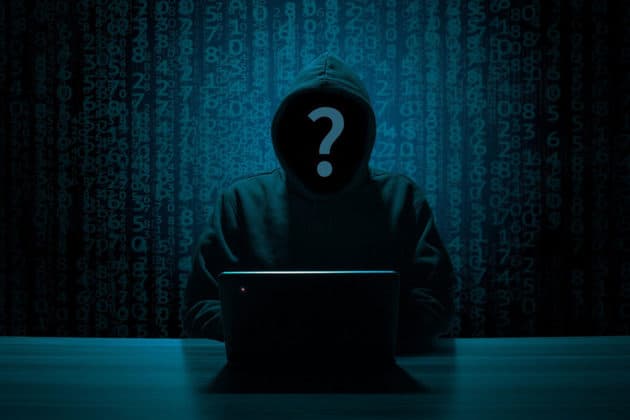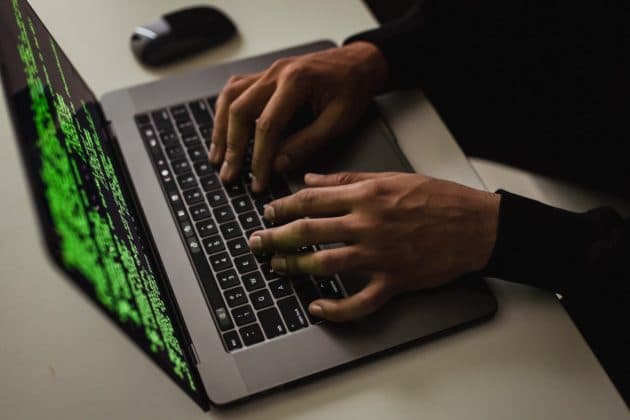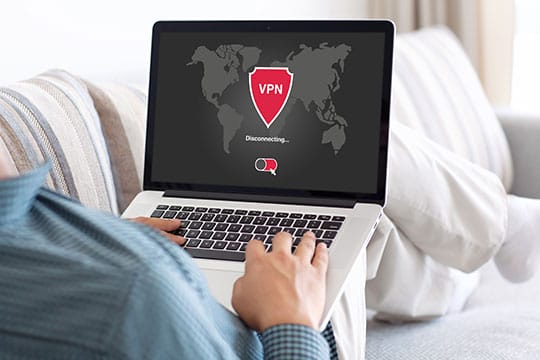Torrenting is a legal and security risk when used to exchange or download large files. The torrenting protocol is particularly beneficial for rapidly distributing large data structures to a large number of people. Downloading files using Torrent without first performing security checks, on the other hand, may offer a number of cybersecurity risks.
Torrenting could be a highly risky business. You might not only come across movies, TV shows, or programs that are contaminated with viruses and spyware, but you might also run into legal issues due to copyright restrictions.
Torrents are file downloads from peer-to-peer networks. Video games, films, music, photos, and other forms of media are all possible. These files do not have a single administrator, and they are transmitted from one user to the next throughout a platform. While torrenting is simple and rapid, it is also fraught with security danger.
Why security is important while torrenting?

Torrenting is the process of simultaneously downloading several little files from various sources; it’s effectively communal raising for digital content. While torrenting files may appear to be secure when hidden behind the immensity of the Internet, it is a risky proposition that could put you in legal problems.
While the BitTorrent protocol and network are not unlawful in and of themselves, the majority of information transmitted via torrents is made up of files that may infringe on copyright holders’ rights. Because torrenting is so prevalent and decentralized, it’s easy to imagine there are no penalties.
Unsafe torrenters may be in for a harsh awakening if they do not take the appropriate safeguards. Although elevated litigation in which Hollywood studios prosecuted university students for thousands of dollars is no longer common, copyright owners are still combating infringement behind the scenes.
Torrenters can get into difficulty in three ways: legal agreements, ISP penalties, privacy loss, and virus or malware infection. Users who have downloaded a file must next upload it to the peer-to-peer BitTorrent network, which uncovers them to many risks.
Torrenting security risks

We’ll take a look at a few of these risks and how they could affect you:
Recommended for you: 12 Types of Endpoint Security Every Business Should Know.
Malware risks

Malware is one of the most prevalent and deadly threats you can encounter on torrenting websites. In reality, anyone downloading a file from a torrenting website has no idea what the file contains. You run the risk of uncovering your computer to various hazards if you download a malware-infected file. The following are some of the most serious malware threats:
- Ransomware: A ransomware virus attacks your computer and encrypts all of your files. It logs you out and displays a message requiring money to a specified account in order to reclaim your data. One of the most well-known varieties of malware is this.
- Phishing scams: Phishing scams involve a hacker obtaining your email or mobile phone number and sending messages that appear to be from legitimate businesses. They collect your personal information under that guise. Account hacking, SIM swapping attacks, and other things could happen as a result.
- Viruses: Viruses are dangerous computer programs sent to your computer via electronic mail by hackers. They infect your computer and spread to every other device on your network once you open them. They can send spam emails, hack & expose your personal information and contacts, hijack your web browser, and display intrusive advertisements, among other things.
Legal issues that could arise

The majority of the content you download through torrenting sites is protected by copyright laws and downloading it without the owners’ permission is illegal.
Many torrent users are facing legal concerns and are now being monitored by authorities. ISPs have technologies that allow them to monitor a torrent user’s internet behavior. You could risk legal action if these programs discover any evidence of downloading unauthorized content or copyrighted torrent files.
This action may result in the issuance of warnings and the levy of fines against you. Your ISP’s license could be revoked as well.
The simplest approach to avoid all of this is to run antivirus software on the file you download before opening it. Check for malware in the file and remove it before launching the site.
Keep in mind, however, that not all torrents are unlawful. You can find legal torrents on the internet, and if you locate any, you should take advantage of them.
Also, keep in mind that piracy laws and penalties differ between states and nations. To snoop on networks and locate users’ IP addresses, most governments hire copyright trolls and agents. They then send legal letters to your Internet service provider, who will notify you of two options: a fine or a court hearing date.
Network vulnerabilities

You may become subject to cyberattacks if you download a torrent. The majority of peer-to-peer file-sharing networks pose no direct hazards to your computer. You could, however, be targeted by someone who uploads a malicious file to the platform.
When you download and share a torrent file, the file’s creator becomes active and can track your online actions. If the file’s original uploader is a hacker, they can make use of this information. This is why many IT experts advise using anonymous surfing when visiting torrenting sites. Hackers won’t be able to access your information this way.
Risks to data security

Another major issue when downloading content from torrenting sites is the possibility of unauthorized parties gaining access to your sensitive data. If you use a workplace computer to access a torrenting site, you risk exposing the company’s sensitive information to a network of hackers.
It’s possible that an employee downloads torrents and saves them in the same folder as sensitive company data. If a torrent file is discovered, higher authorities may take action against the employee. To be clear, downloading torrent files from a work computer is not recommended; nevertheless, if you must, store them in separate files.
Financial hurdles

You’re dealing with thousands of dollars when you consider the cost of fixing faults and other potential implications of a torrenting download gone wrong. You don’t want to spend money on issues that could have been prevented in the first place.
You may like: Top 6 Essential Security Tips for Magento E-commerce Website.
Torrenting security and legality

Before we go into security, let’s take a look at the legal aspect of torrenting. The technology itself is completely lawful. There isn’t any doubt about that. It’s fine as long as the item available for download does not infringe on the creator’s rights. However, because verifying the sources of content is a bit of a hazy area, some governments have decided to outright ban the use of torrenting applications.
Here’s a visual representation of the regulations in several countries. We may feel compelled to navigate prohibited seas or locate a book for public consumption, but we must be cognizant of the consequences. You could face a substantial fine or perhaps imprisonment in several nations, depending on the policy in place.
If you want to use torrenting clients to download files in restricted areas, a good solution is to use a VPN like NordVPN. Furthermore, as a peer, the network shares your device information, making you exposed. Along with your anti-virus, the added encryption layer will protect you from malware, hacks, and viruses.
Use a VPN for safe torrenting

It’s a no-brainer to use a VPN for Torrenting. A VPN encrypts your incoming and outgoing data, making it impossible for your ISP to track your online activities. As a result, they won’t know whether you’re downloading from a BitTorrent network! Using a VPN, your digital privacy will be enhanced, allowing you to surf the internet without any fear of penalties.
VPNs also prevent your true IP address from being tracked by the websites you visit. Because of that, anyone trying to monitor torrent users won’t be able to see your IP address; instead, they’ll see the IP address of the VPN server.
There is, admittedly, a way for locating VPN users that can be exploited with precision. A temporal correlation attack is what this is called, and it can be easily avoided by using zero-log VPN services. These companies are regarded as the best in the privacy world, which is why we urge that torrenters choose VPNs that give this level of protection.
Your IP address can also be hidden for security reasons. When you torrent over a peer-to-peer network, you’re possibly broadcasting your residential IP address to everyone else on the network. If some person on that P2P network is a hacker, they could look for open ports or IoT (Internet of Things) devices to add to a botnet by probing your IP address. Using a VPN prevents other torrenters on the P2P network from identifying you.
Because torrenting consumes a lot of resources and can significantly increase the cost of hosting VPN servers, not every VPN allows it. The more data that is downloaded, the more data that needs to be processed, and the server hosting providers that VPN providers rent from may charge them more for the privilege.
You may also like: The 17 Best Cybersecurity Tips to Stay Protected Online in 2022.
Conclusion

Torrenting is alive and thriving. Peer-to-peer technology has a wide range of applications and can be both disruptive and beneficial. While torrenting is quick and convenient, it can be dangerous if done incorrectly. To be safe, double-check that the files you’re downloading aren’t dangerous. Even better, use a seedbox to get your stuff.





